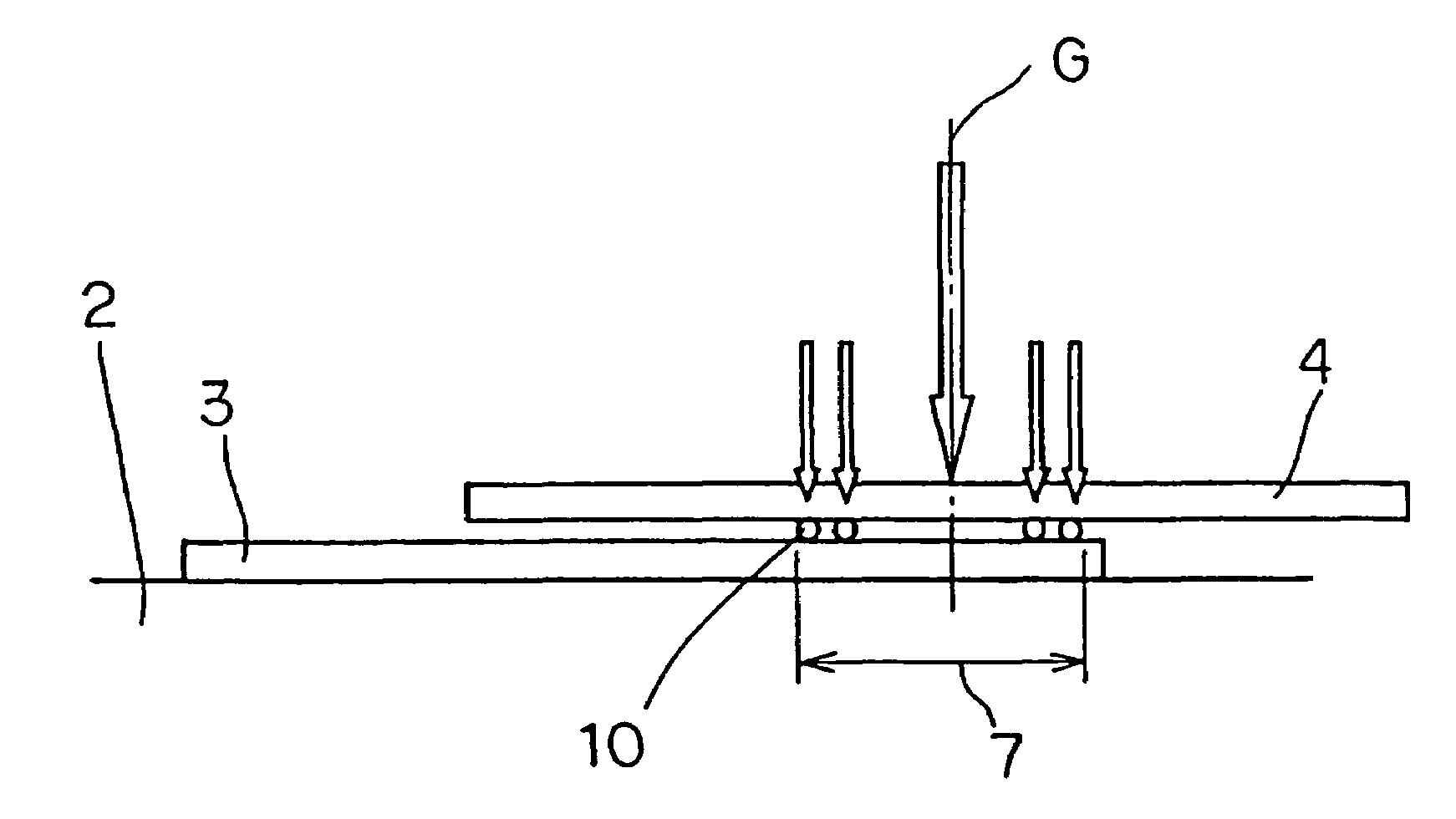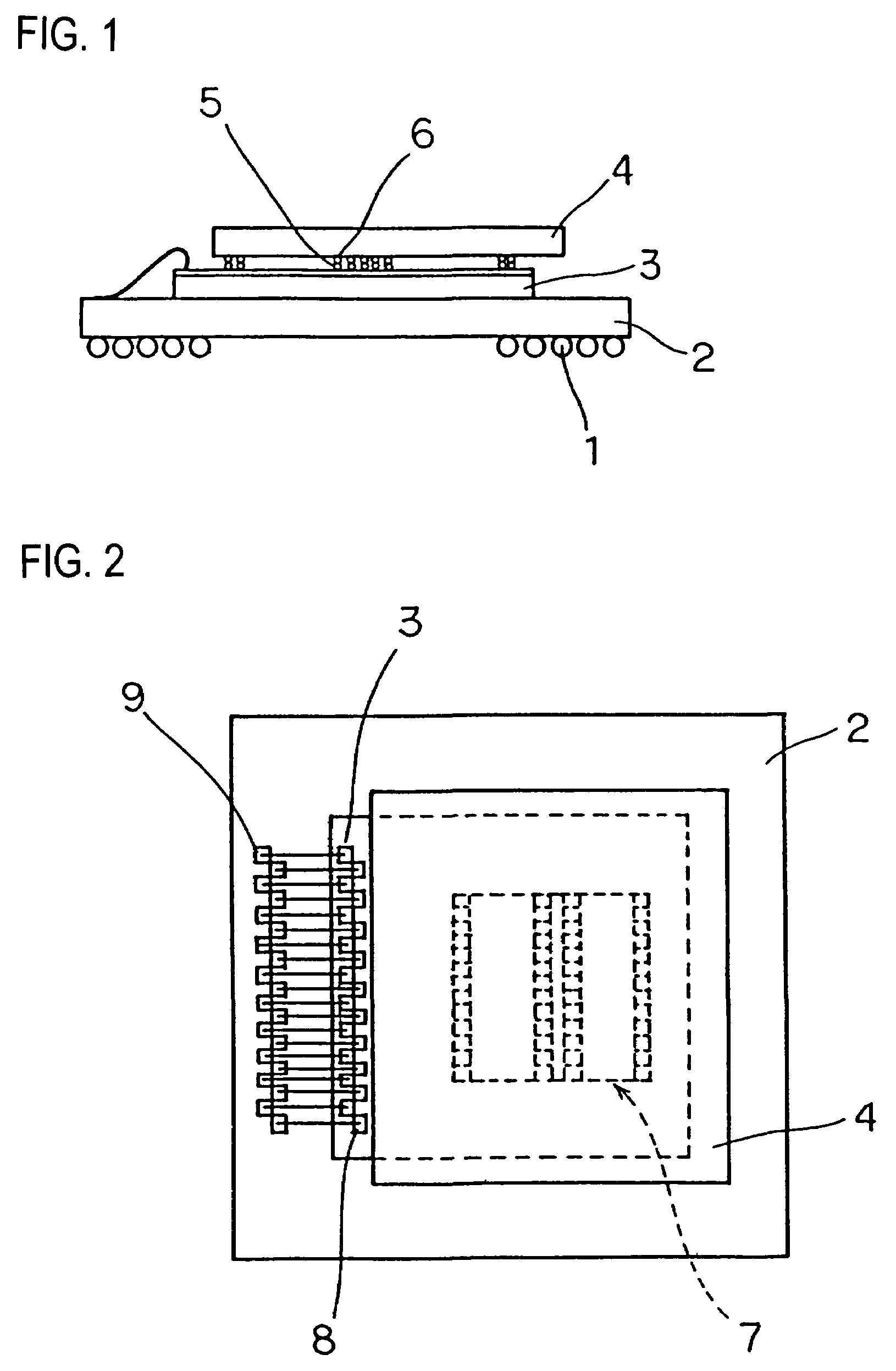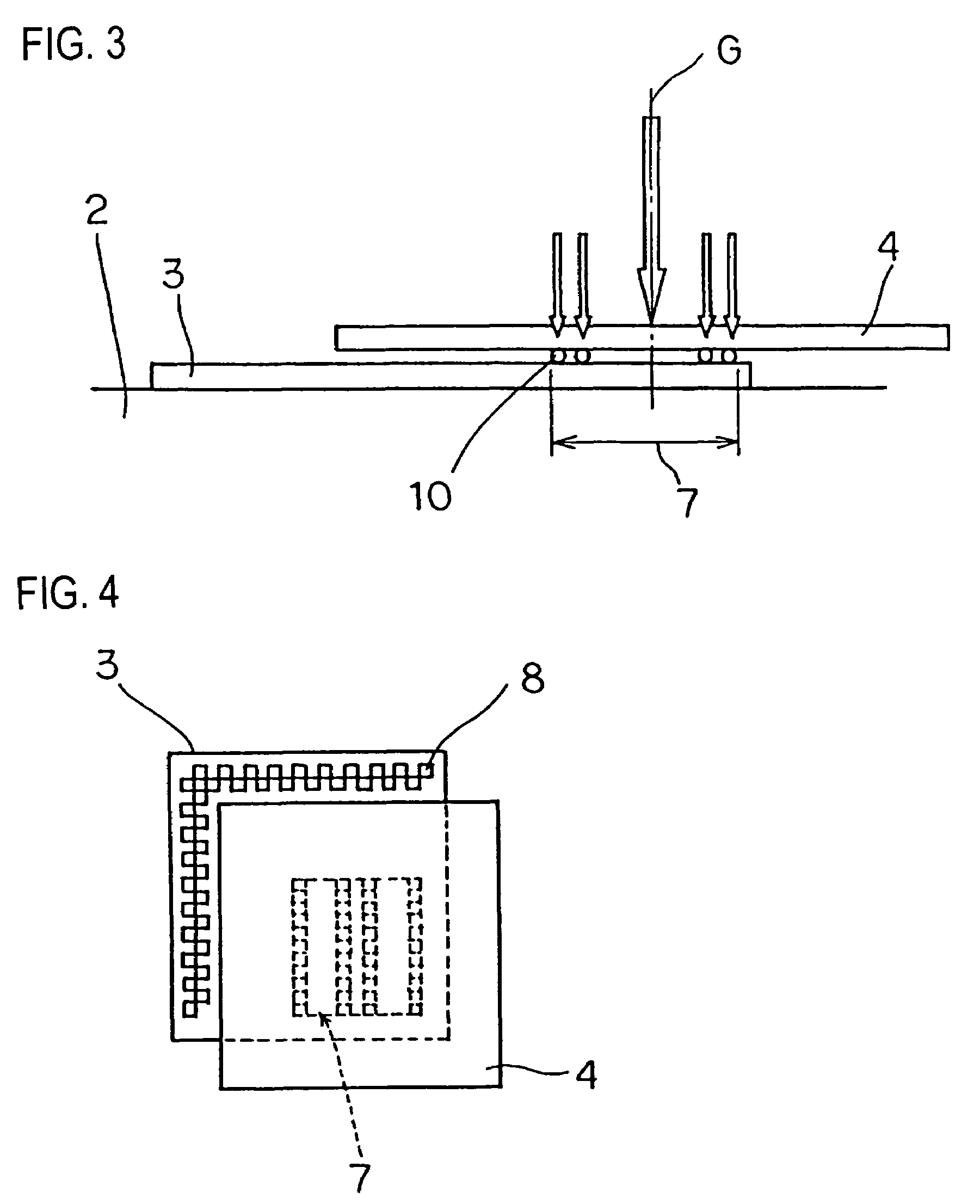Offset-bonded, multi-chip semiconductor device
a semiconductor device and chip technology, applied in semiconductor devices, semiconductor/solid-state device details, electrical devices, etc., can solve the problems of affecting the reliability of bonding, affecting the bonding reliability of the bonding, and affecting the placement of external connection terminals
- Summary
- Abstract
- Description
- Claims
- Application Information
AI Technical Summary
Benefits of technology
Problems solved by technology
Method used
Image
Examples
first embodiment
(First Embodiment)
[0053]FIG. 1 is a side elevation showing a configuration of a COC-type semiconductor device according to the first embodiment of the present invention, and FIG. 2 is a plan view of the semiconductor device shown in FIG. 1.
[0054]Referring now to FIG. 1, ball bumps 1 as electrode terminals are arranged on one surface of a substrate (printed wiring board, for example) 2 having electric wirings already formed thereon. On the other surface of the substrate 2, a first chip 3 is mounted. The first chip 3 and a second chip 4 are bonded with each other so that the second chip 4 is shifted in parallel from the first chip 3, while allowing a portion of the second chip 4 to run over the first chip 3.
[0055]The first chip 3 disposed on the lower side is a logic chip, and the second chip 4 is a memory chip having a larger geometrical area than that of the logic chip. The first chip 3 can be a silicon chip.
[0056]The first chip 3 and second chip 4 are bonded based on the face-down ...
second embodiment
(Second Embodiment)
[0083]The first embodiment exemplified the semiconductor device having two chips stacked on the substrate, but the present embodiment will exemplify a semiconductor device having three or more chips stacked on a substrate.
[0084]FIG. 14 and FIG. 15 are side elevations of semiconductor devices according to the second embodiment of the present invention, respectively having a plurality of chips stacked therein.
[0085]FIG. 14 shows an embodiment of a semiconductor device having three chips stacked on a substrate.
[0086]Similarly to the first embodiment, the first chip 3 is mounted on the substrate having electric wirings already formed thereon, and the second chip 4 is bonded on the first chip 3 based on the face-down bonding style. Parallel shifting of the second chip 4 with respect to the first chip 3 allows the surface of the first chip 3 to expose, and the exposed region serves as the external connection terminal region having a plurality of bonding pad arranged the...
PUM
 Login to View More
Login to View More Abstract
Description
Claims
Application Information
 Login to View More
Login to View More - R&D
- Intellectual Property
- Life Sciences
- Materials
- Tech Scout
- Unparalleled Data Quality
- Higher Quality Content
- 60% Fewer Hallucinations
Browse by: Latest US Patents, China's latest patents, Technical Efficacy Thesaurus, Application Domain, Technology Topic, Popular Technical Reports.
© 2025 PatSnap. All rights reserved.Legal|Privacy policy|Modern Slavery Act Transparency Statement|Sitemap|About US| Contact US: help@patsnap.com



